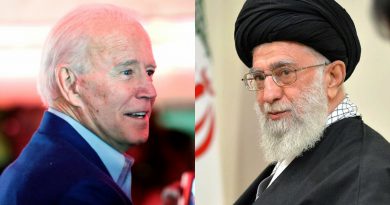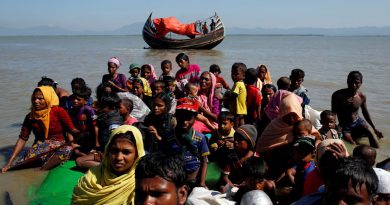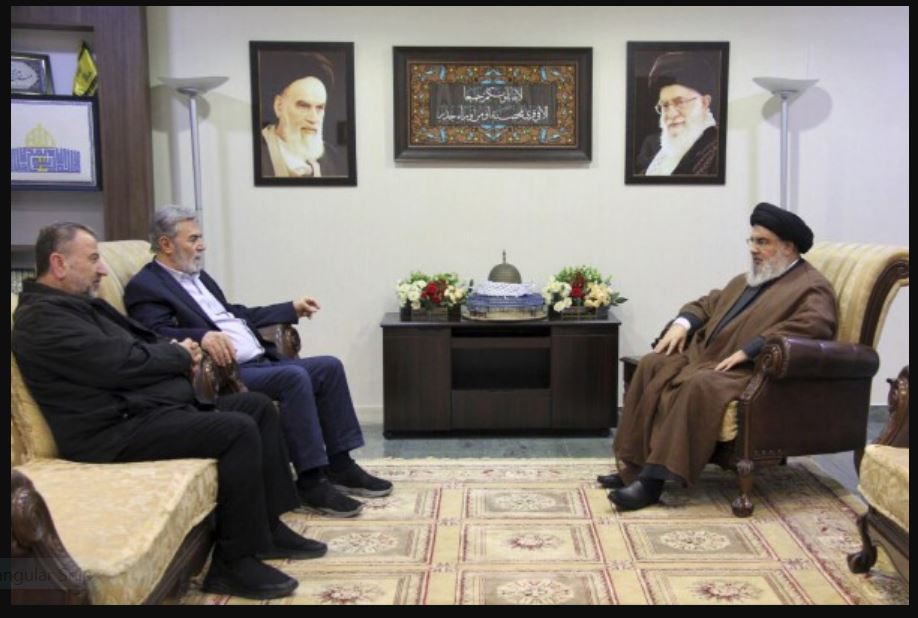South Korea and Japan use G-7 to push improvement in ties long marked by animosity
Associated Press
Japanese Prime Minister Fumio Kishida’s invitation for South Korean President Yoon Suk Yeol to be a guest at the G-7 talks in Hiroshima is only the most recent sign of these reset ties.
Amid the high-level efforts to deal with a raft of global emergencies, this weekend’s Group of 7 summit of rich democracies will also see an unusual diplomatic reconciliation as the leaders of Japan and South Korea look to continue mending ties that have been marked for years by animosity and bickering.
At first glance the two neighbors would seem to be natural partners. They are powerful, advanced democracies and staunch U.S. allies in a region beset with autocratic threats. The continuing fallout, however, from centuries of complicated, acrimonious history, culminating in the brutal 1910-1945 Japanese colonization of the Korean Peninsula, has resulted in more wariness than friendship.
A big part of the sudden recent shift in tone is a shared focus on China’s growing aggressiveness, t he threat of North Korea’s fast-improving arsenal of nuclear-capable missiles — and deep worry about how Russia’s war in Ukraine is influencing both issues. Some diplomatic nudging by Washington, which provides military protection for both its allies and wants them to more strongly counter China’s rising global influence, has also helped.
Tokyo and Seoul “understand that their survival, both nationally and politically, depends on subordinating themselves to the U.S. President Joe Biden administration’s global and regional priorities,” according to Daniel Sneider, an East Asia lecturer at Stanford University.
Japanese Prime Minister Fumio Kishida’s invitation for South Korean President Yoon Suk Yeol to be a guest at the G-7 talks in Hiroshima is only the most recent sign of these reset ties. It follows back-to-back summits by the leaders, which hadn’t happened in years. Japan also agreed to South Korea’s request to send an experts’ team later this month to visit the destroyed Fukushima nuclear power plant to view preparation for a planned release into the ocean of treated but still slightly radioactive wastewater.
The G-7 summit, which runs Friday through Sunday, will allow the leaders to deepen their burgeoning relationship — Kishida, Yoon and Biden plan to meet on the sidelines — while also working to persuade the world’s most powerful leaders to tighten defense cooperation as China and North Korea expand their military postures in the region.
History issues have long harried Seoul and Tokyo. Ties worsened in 2018, for instance, after South Korean court rulings ordered two Japanese companies to compensate a group of Korean plaintiffs who the companies had used for wartime slave labor. Disagreement over the rulings later spilled over to trade and military cooperation issues. Japan insists all compensation issues were settled by a 1965 treaty that normalized relations.
Yoon’s summits with Kishida came after his government announced a domestically unpopular plan in March to use South Korean corporate funds to compensate the forced laborers. The move was aimed at preventing the courts from liquidizing the Japanese companies’ local assets, which would cause a further diplomatic rupture.
Kishida agreed to a resumption of defense, trade and other talks in his meetings with Yoon, and Japan recently announced that it is negotiating an agreement with Washington and Seoul on sharing real-time data on North Korean missile launches.
Seoul and Tokyo are both worried about the geopolitical uncertainty created by Russia’s invasion of Ukraine, which has raised fears about similar Chinese aggression in the South and East China Seas and against Taiwan, the democratic, self-governing island that Beijing claims as its own. North Korea also used the global focus on the invasion to ramp up its tests of nuclear-capable missiles.
Japan is one of many nations in Asia that has territorial disputes with China, something that has strongly figured into Kishida’s push to distance Japan from its post-World War II principle of self-defense only. Last year, Tokyo adopted a new national security strategy that includes the goals of acquiring preemptive strike capabilities and cruise missiles to counter threats from North Korea, China and Russia.
Alarmed by the growing North Korean threat — Pyongyang has test-launched around 100 missiles since the start of 2022 — Yoon may be using better relations with Japan as a way to forge a stronger alliance with the United States.
Yoon’s government has expanded its combined military exercises with the United States, which also included three-way drills with Japan, while seeking greater assurances from Washington that it would swiftly and decisively use its nuclear weapons to protect its allies in the event of a North Korean nuclear attack.
“There’s growing recognition (in both Tokyo and Seoul) that the region’s various security issues are becoming increasingly interconnected,” which is leading the countries to reassess their importance to each other, said Jin Chang Soo, an analyst at South Korea’s Sejong Institute.
During a recent meeting in Washington, Yoon and Biden agreed to a declaration that includes more nuclear information-sharing and regular visits to South Korea by a U.S. nuclear-powered sub.
The Biden administration may now be pushing for an extended deterrence dialogue among Washington, Seoul and Tokyo that “would convey a formidable response both to North Korea and to China, and even to a potential Chinese–Russian military axis,” Sneider recently wrote.
Hiroshima, the first target of a nuclear weapon in history, could provide a symbolic backdrop for Kishida and Yoon to raise awareness about the North Korean threat while underlining goals for nuclear non-proliferation.
In another trust-building gesture, Kishida and Yoon plan to pay their respects at a Hiroshima memorial for Korean atomic bomb victims.
Despite the improving ties, however, there’s no certainty how long reconciliation will last.
After decades of poverty and dictatorship following the 1950-53 Korean War, South Korea has become a developed economic and military power. But there are large policy swings between conservative governments, like the one in power now, and liberal governments that are more wary of stronger ties with Japan and the United States.
And then there are the historical issues, including continuing court hearings on forced labor, which remain “buried like landmines, not far from the surface and ready to be set off,” Sneider said.



